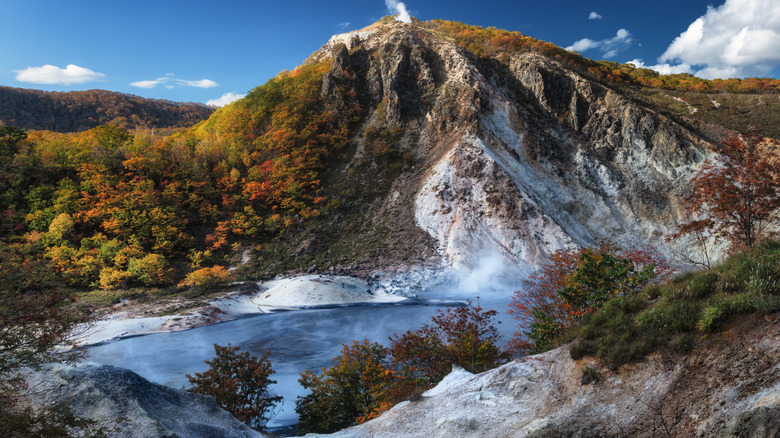Experts discover alarming culprit behind mystery lung cancer surge in never-smokers... all Britons could be at risk
Tiny air pollution particles may be behind the surge in lung cancer cases among people who have never smoked, concerning research today suggested.
The World Health Organisation (WHO) has long demanded countries take tougher action to combat the scourge of pollution, which is thought to kill 7million people every year globally.
Now, in a fresh study tracking almost 1,000 never-smoker patients across four continents, US researchers found people living in more polluted areas had significantly more cancer-driving mutations in their lung tumours.
Particles less than 2.5 micrometers in diameter (PM2.5)—considered the most dangerous air pollutant—were linked to mutations in the TP33 gene, which accounts for the majority of lung cancer cases.
These particles are too tiny to be filtered out by our nose and lungs, which can deal with larger particles such as pollen.
Researchers also found people exposed to greater air pollution had shorter protective stands of DNA, linked to ageing more quickly.
Experts today, who labelled the findings 'problematic', said it showed air pollution was an 'urgent and growing global problem'.
Professor Ludmil Alexandrov, an expert in cellular and molecular medicine at the University of California in San Diego and study co-author, said: 'We're seeing this problematic trend that never-smokers are increasingly getting lung cancer, but we haven't understood why.

In a fresh study tracking almost 1,000 never-smoker patients across four continents, US researchers found people living in more polluted areas had significantly more cancer-driving mutations in their lung tumours

Symptoms of lung cancer are often not noticeable until the cancer has spread through the lungs, to other parts of the body
'Our research shows that air pollution is strongly associated with the same types of DNA mutations we typically associate with smoking.'
Dr Maria Teresa Landi, a cancer epidemiologist at the US National Institute of Health in Maryland, added: 'This is an urgent and growing global problem that we are working to understand regarding never-smokers.
'Most previous lung cancer studies have not separated data of smokers from non-smokers, which has limited insights into potential causes in those patients.
'We have designed a study to collect data from never-smokers around the world and use genomics to trace back what exposures might be causing these cancers.'
Although smoking remains the biggest risk factor for lung cancer, it's estimated that nearly 6,000 people who have never smoked die of the disease each year.
While smoking rates are decreasing, some studies show that cases in non-smokers are increasing at an alarming rate, doubling between 2008 and 2014 alone.
In the fresh study, scientists analysed the entire genetic code of lung tumours removed from 871 never-smokers in Europe, North America, Africa and Asia.
They found that the higher the levels of air pollution in a region, the more cancer-driving and cancer-promoting mutations were present in residents’ tumours.
PM2.5 was particularly linked to mutations in genes including the TP53 gene which has previously been associated with tobacco smoking, even after accounting for factors that could skew the results such as gender and age.
Studies have long suggested that PM2.5 particulates can enter the bloodstream, where they cause other serious illnesses such as heart disease.
People exposed to greater air pollution also had shorter telomeres, the researchers said.
These are protective strands of DNA found at the ends of chromosomes.
Telomeres tend to shorten with age, so premature telomere shortening is interpreted as a sign of rapid ageing.
Writing in the journal Nature, the researchers said increasing levels of PM2.5 'could result from extra DNA damage in people living in more polluted areas'.
Lung cells may also 'undergo more cell divisions in polluted environments', they added.
The research adds to a growing body of evidence suggesting PM2.5 is a significant risk factor for lung cancer.

One recent meta-analysis involving 17 separate studies, found an increase in exposure to PM2.5 raised the risk of lung cancer by eight per cent and dying from the disease by 11 per cent.
Lung cancer strikes around 50,000 people in the UK and 230,000 in the US every year.
It is the world's biggest cancer killer. It is notoriously difficult to diagnose and often appears later when it's harder to treat.
Figures show it kills four out of five patients within five years. Fewer than 10 per cent of people survive their disease for a decade or more.
Despite the progress, a disparity among sexes is emerging, with women between the ages of 35 and 54 being diagnosed with lung cancer at higher rates than men in that same age group.
You may also like...
Diddy's Legal Troubles & Racketeering Trial

Music mogul Sean 'Diddy' Combs was acquitted of sex trafficking and racketeering charges but convicted on transportation...
Thomas Partey Faces Rape & Sexual Assault Charges

Former Arsenal midfielder Thomas Partey has been formally charged with multiple counts of rape and sexual assault by UK ...
Nigeria Universities Changes Admission Policies

JAMB has clarified its admission policies, rectifying a student's status, reiterating the necessity of its Central Admis...
Ghana's Economic Reforms & Gold Sector Initiatives

Ghana is undertaking a comprehensive economic overhaul with President John Dramani Mahama's 24-Hour Economy and Accelera...
WAFCON 2024 African Women's Football Tournament

The 2024 Women's Africa Cup of Nations opened with thrilling matches, seeing Nigeria's Super Falcons secure a dominant 3...
Emergence & Dynamics of Nigeria's ADC Coalition

A new opposition coalition, led by the African Democratic Congress (ADC), is emerging to challenge President Bola Ahmed ...
Demise of Olubadan of Ibadanland
Oba Owolabi Olakulehin, the 43rd Olubadan of Ibadanland, has died at 90, concluding a life of distinguished service in t...
Death of Nigerian Goalkeeping Legend Peter Rufai

Nigerian football mourns the death of legendary Super Eagles goalkeeper Peter Rufai, who passed away at 61. Known as 'Do...





